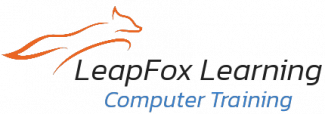10975 - Introduction to Programming
Training for your Group
- Private class for your team
- Online or on-location
- Fully customizable course material
- Onsite testing available
Training for Individuals
$2875
- Live, Instructor-led training
- Expert instructors
- Hands-on instruction
Course Overview
In this Introduction to Programming training class, students use C# to learn the basics of computer programming through the use of Microsoft Visual Studio 2013 and both the Visual C# and Visual Basic programming languages. The course assumes no prior programming experience and introduces the concepts needed to progress to the intermediate courses on programming, such as 20483B: Programming in C#.
Course Length: 5 days
Audience: This course is intended for anyone who is new to software development and wants, or needs, to gain an understanding of programming fundamentals and object-oriented programming concepts.
Prerequisites: Experience in the following is required for this C# class: Ability to understand logical concepts such as comparisons. Understand number theory. Ability to create, understand, and follow structured directions or step-by-step procedures. Ability to understand and apply abstract concepts to concrete examples.
What You're Going To Learn
- Learn to explain core programming fundamentals such as computer storage and processing.
- Learn to explain computer number systems such as binary.
- Learn to create and use variables and constants in programs.
- Learn to explain how to create and use functions in a program.
- Learn to create and use decisions structures in a computer program.
- Learn to create and use repetition (loops) in a computer program.
- Learn to explain pseudocode and its role in programming.
- Learn to explain the basic computer data structures such as arrays, lists, stacks, and queues.
- Learn to implement object-oriented programming concepts.
- Learn to create and use classes in a computer program.
- Learn to implement encapsulation, inheritance, and polymorphism.
- Learn to describe the base class library (BCL) in the .NET Framework.
- Learn to explain the application security concepts.
- Learn to implement simple I/O in a computer program.
- Learn to identify application errors and explain how to debug an application and handle errors.
- Learn to identify the performance considerations for applications.
Register for an Upcoming Date
| Date | Location | Price | Register |
|---|
Course Outline
Introduction to Core Programming Concepts
- Computer Data Storage and Processing
- Application Types
- Application Life-Cycle
- Code Compilation
- Lab: Thinking Like a Computer
- Creating Step-by-Step Directions for a Morning Routine
Core Programming Language Concepts
- Syntax
- Data Types
- Variables and Constants
- Lab: Working with Data Types
- Selecting Data Types
- Declaring and Using Variables for Numeric Types
- Declaring and Using Variables for Textual Data Types
- Working with Boolean Variables
- Declaring and Using Constants
Program Flow
- Introduction to Structured Programming Concepts
- Introduction to Branching
- Using Functions
- Using Decision Structures
- Introducing Repetition
- Lab: Creating Functions, Decisions, and Looping
- Implementing Functions
- Implementing Decisions in Code
- Implementing Repetition Structures
Algorithms and Data Structures
- Understand How to Write Pseudo Code
- Algorithm Examples
- Introduction to Data Structures
- Lab: Working with Algorithms and Data Structures
- Working with Pseudo Code
- Creating Data Structures
Error Handling and Debugging
- Introduction to Program Errors
- Introduction to Structured Error Handling
- Introduction to Debugging in Visual Studio
- Lab: Implementing Debugging and Error Handling
- Create Structured Exception Handlers
- Using the Visual Studio Debugger
Introduction to Object-Oriented Programming
- Introduction to Complex Structures
- Introduction to Structs
- Introduction to Classes
- Introducing Encapsulation
- Lab: Implementing Complex Data Structures
- Creating structs
- Creating Classes
More Object-Oriented Programming
- Introduction to Inheritance
- Introduction to Polymorphism
- Introduction to the .NET Framework and the Base Class Library
- Lab: Implementing Inheritance
- Creating a Base Class
- Inheriting a Base Class
- Lab: Implementing Polymorphism
- Implementing Polymorphism by Overriding a Function
- Implementing Polymorphism by Overloading
Introduction to Application Security
- Authentication and Authorization
- Code Permissions on Computers
- Introducing Code Signing
Core I/O Programming
- Using Console I/O
- Using File I/O
- Lab: Core I/O Programming
- Reading and Writing with the Console
- Reading and Writing Files
Application Performance and Memory Management
- Value Types vs Reference Types
- Converting Types
- The Garbage Collector
- Lab: Using Value Types and Reference Types
- Converting Types
What to Expect at LeapFox
Knowledgeable Instructors
Our instructors are certified professionals. They are trained on the latest features and how to get the most out of software programs.
Hands-on Labs
No boring lectures! Our courses are designed to give students lots of time to practice what they are learning with hands-on exercises and projects.
Certificate of Completion
Receive a certificate of completion at the end of every course.
Up-to-date Curriculum
Each course comes with a helpful and up-to-date ebook which will contain instruction and practice exercises.
Time Saving Tips N Tricks
In each course, your instructor will show you tips and tricks that will save you time and make you more efficient.
Friendly and Helpful Staff
Our staff is dedicated to your success. Each team member is trained to provide the absolute best customer service possible.
Satisfaction Guarantee
If you aren't 100% satisfied with your experience at LeapFox, simply let us know, and we will make it right.
